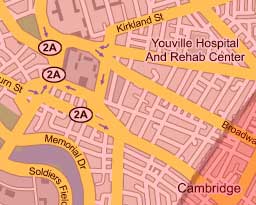Thoughts on Hiroshima 18 years, 8 months ago by Martey Dodoo
Although I spent most of yesterday asleep, I have spent most of my waking hours reading and thinking about Hiroshima, which was attacked by a nuclear bomb 60 years ago. Over the past two weeks, the British newspaper The Guardian has released a number of articles about the blast, including edited versions of the interviews made by American journalist John Hershey. While interesting, the stories that the hibakusha tell are also extremely depressing. I wanted to quote something from Hersey, but could find nothing suitable - the combination and sheer magnitude of the destruction (multiple people that Hershey interviewed assumed that their house had suffered a direct hit from a conventional bomb), the gruesome injuries, and the innocence of the victims (the majority of whom were civilians) cannot be conveyed in a single quote.
While it is simple to weigh the hundred of thousand casualties of Hiroshima and Nagasaki as being less than the millions that would have died if the United States had attempted to invade Japan's home islands on paper, thus a task seems morally impossible considering the horrific nature of Hiroshima and Nagasaki. Operation Downfall would have been horrendous in itself, but it is difficult to be caustically pragmatic and claim that it was "justified" because an invasion would have killed more Japanese.
Still, it does seem true that Japanese militarism also died in Hiroshima. Were it not for the bombings, Japan would almost assuredly be a nuclear power today. It might even have a standing army instead of "self-defense forces." While such changes might seem trivial, they easily could have been the difference between disputes between Japan and its neighbors escalating from diplomatic conflicts to total war. This is not meant to justify nor migitate the horror of what happened at Hiroshima and Nagasaki, but to attempt to put it into context. Since we cannot know what might have happened if President Truman had chosen not to use the bomb, we must try to comfort from the thought that the past horror of Hiroshima has become a positive influence in the present.

Of course, this raises the question of whether we have really learned anything from Hiroshima. While it is true that nuclear weapons have not been used in warfare since the Second World War, this seems more the product of good fortune than careful deliberation. While it is true that the United States and the Soviet Union did not come to nuclear blows during the Cold War, a few minor changes in history - Stalin living a few years longer, or less communication during the Cuban Missile Crisis - could have easily created a nuclear war.
While the Cold War and its threat of Soviet attack is over, recent events still worry me. When I hear of the Bush Administration calling for the development of bunker-busting tactical nuclear weapons to kill terrorists, or Chinese generals advocating nuclear escalation in a conflict over Taiwan, or Iranians claiming that they have the "right" to make nuclear weapons, or when I realize a 1 megaton nuclear detonation in Boston would most likely kill me, I wish there had been some way that the Baruch Plan could have been implemented.